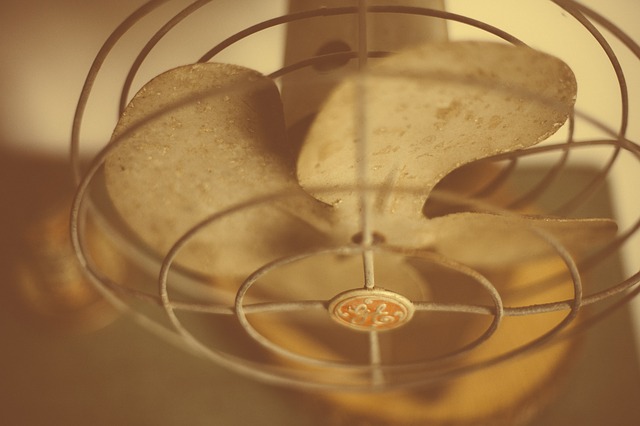Causes Of Burning Smell From An Air Conditioner
Unlike other places in the United States, Texas is the one place that no one can survive without air conditioning. The weather here is almost always hot and humid, which makes homes and offices extremely hot and uncomfortable with the AC turned off. It is due to this reason that most people ensure their air conditioning maintained regularly to avoid HVAC emergencies. Having a certified Houston HVAC expert work on your air conditioner is the only best way to ensure it remains functional all year round.
With the AC system working all day every day, many people report of a burning smell coming from their air conditions. Although this may be due to the system being overworked, it would be best to have the unit checked immediately.
Some of the common causes of odd smells from cooling systems include:
Musty Odor
 A musty smell may be as a result of a clogged condensate line in the cooling unit, or due to mildew growing in the ductwork. Some of this may be due to the accumulation of water in the drip pan allowing mold to grow. Should the pan be misaligned in a way, then the drain line gets clogged from the stagnating water. While some AC systems will turn off automatically to prevent further damage, the excess water may short out electricals inside. Having the problem addressed, however, eliminates the problem.
A musty smell may be as a result of a clogged condensate line in the cooling unit, or due to mildew growing in the ductwork. Some of this may be due to the accumulation of water in the drip pan allowing mold to grow. Should the pan be misaligned in a way, then the drain line gets clogged from the stagnating water. While some AC systems will turn off automatically to prevent further damage, the excess water may short out electricals inside. Having the problem addressed, however, eliminates the problem.
Burning Smells
Always turn off the air conditioner should you detect a burning smell from the system. Both electric and gas powered AC systems need an electric igniter to start. Should the system be faulty, the igniter can cause an electrical fire which could spread pretty fast especially with the hot and humid air flowing. If certain that there’s a burning smell coming from the system, turn the system off immediately then call a Houston HVAC repair technician immediately. The technician should be able to diagnose the problem and handle the repairs easily.
Getting to know your air conditioner and some of the potential causes of burning smells in HVAC appliances include:
a. A failing motor:
Dust buildup and lack of adequate lubrication on the same is one of the factors that cause the motor to fail and the burning smell. Since the motor has to drive fans in the system, continued use of the same causes significant stress that creates the burning smell. The technician can either repair/clean the motor or replace it altogether.
b. Clogged air filter:
An AC’s air filter works in an almost similar way as your car’s air filter. Its main job is to protect components inside from dust, dirt, and other debris. With this component working all the time, these particles and mostly dust start building up making it hard for the system to get enough air. Charred particles of the filtered out particles add an acrid smell to the air vents, thus the burning smell. Replacing the air filters at least once every 3 months can, however, prevent this from happening.
In Conclusion
Hiring an HVAC contractor in Houston to take care of your AC system is the best way to ensure your system remains in tip top condition. Contact AC Man Houston today for a quote.

 To be completely fair, most problems an air conditioner doesn’t usually give off warning signs until they have been around long enough to cause a system damage. By the time any odd behavior is noticed, it could be too late to prevent most of the damage that the issue could cause. It is a lot more cost-effective and convenient to schedule a preventative care appointment, this way and problems are caught early.
To be completely fair, most problems an air conditioner doesn’t usually give off warning signs until they have been around long enough to cause a system damage. By the time any odd behavior is noticed, it could be too late to prevent most of the damage that the issue could cause. It is a lot more cost-effective and convenient to schedule a preventative care appointment, this way and problems are caught early. When ice accumulates, there’s something going wrong with the system that you will need to have serviced. It’s possible that you have a clogged air filter. The air filters purpose in an air conditioner is there to protect the working parts in the unit. If it becomes clogged it’s unable to work efficiently and heat will not be pulled over the evaporator coil as it should. That leads to the coil becoming too cold and any moisture there will begin to freeze. The ice then creates a barrier that makes the evaporator coil unable to do its job.
When ice accumulates, there’s something going wrong with the system that you will need to have serviced. It’s possible that you have a clogged air filter. The air filters purpose in an air conditioner is there to protect the working parts in the unit. If it becomes clogged it’s unable to work efficiently and heat will not be pulled over the evaporator coil as it should. That leads to the coil becoming too cold and any moisture there will begin to freeze. The ice then creates a barrier that makes the evaporator coil unable to do its job. Refrigerant Leak: As discussed above, the refrigerant is the fluid that moves the heat from one spot to another. It moves through the lines that connect both the condenser and the indoor evaporator. Homeowners believe that it is natural for the refrigerant to dissipate. However, the reality is that a loss of refrigerant is due to a system leak. The smallest leak can develop into a major problem because leaks cause drops in cooling powers. They are damaging to the condenser.
Refrigerant Leak: As discussed above, the refrigerant is the fluid that moves the heat from one spot to another. It moves through the lines that connect both the condenser and the indoor evaporator. Homeowners believe that it is natural for the refrigerant to dissipate. However, the reality is that a loss of refrigerant is due to a system leak. The smallest leak can develop into a major problem because leaks cause drops in cooling powers. They are damaging to the condenser. Having a professional come out and take a look at your system is also important. Our experts will examine your unit to ensure that it is working properly. We will clean it and put in new parts if necessary. We can also advise you on anything that needs to be fixed. It is always a good idea to make small repairs when necessary so that the issues don’t turn into big ones.
Having a professional come out and take a look at your system is also important. Our experts will examine your unit to ensure that it is working properly. We will clean it and put in new parts if necessary. We can also advise you on anything that needs to be fixed. It is always a good idea to make small repairs when necessary so that the issues don’t turn into big ones. Financial Savings: A whole-house dehumidifier does require an initial investment, just like there is for any type of indoor air quality system or product. However, when a dehumidifier is run, it allows you to adjust your air conditioner by a couple of degrees, or when the temperature is mild you can even shut if off, to help lower your energy bills and save money.
Financial Savings: A whole-house dehumidifier does require an initial investment, just like there is for any type of indoor air quality system or product. However, when a dehumidifier is run, it allows you to adjust your air conditioner by a couple of degrees, or when the temperature is mild you can even shut if off, to help lower your energy bills and save money. There are basically two main sources of low airflow: either something is reducing the power on what does the blowing or something is blocking air flow. If something is blocking the airflow, there may be ductwork damage, such as leaks or crimps. Or it might be a clogged air filter – which is easy enough to fix. If you happen to notice that only one or two of the vents are being impacted by the problem rather than your entire house, then most likely it is an issue with an air duct and not a problem with the actual system.
There are basically two main sources of low airflow: either something is reducing the power on what does the blowing or something is blocking air flow. If something is blocking the airflow, there may be ductwork damage, such as leaks or crimps. Or it might be a clogged air filter – which is easy enough to fix. If you happen to notice that only one or two of the vents are being impacted by the problem rather than your entire house, then most likely it is an issue with an air duct and not a problem with the actual system.